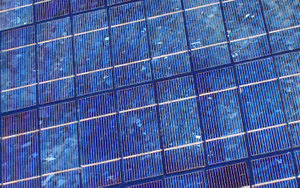Wal-Mart Goes Solar
 photo:
wookiee
photo:
wookieeIn one of the biggest solar deals to date, Wal-Mart will buy 22 million kilowatt-hours of greenhouse gas-free electricity produced from solar arrays to be installed as a pilot project at 22 stores in California and Hawaii. The retail giant estimates the move will reduce planet-warming emissions by 6,500 to 10,000 metric tons a year. The solar systems will be installed by SunPower's (SPWR) PowerLight subsidiary at seven California stores, by SunEdison at four stores in California and four in Hawaii, and by BP Solar (BP) at seven stores in the Golden State. Wal-Mart (WMT) will buy electricity produced by the arrays at market or below market rates and retain ownership of any Renewable Credits. RECs potentially could be worth a bundle if they're allowed to be traded on carbon markets under consideration in California and Hawaii. For instance, a company that exceeds its limit on greenhouse gas emissions could buy Wal-Mart RECs, which represent CO2 avoided through the use of solar energy. Hawaii late last week became the second state after California to pass a cap on greenhouse gas emissions. The solar companies will arrange financing and installation of the arrays and retain ownership. In SunEdison's case, the Maryland company will finance, operate and own the solar arrays it installs for Wal-Mart. A SunPower spokesperson told Green Wombat that the San Jose company is working with a third party to finance the deal but hasn't finalized the arrangements. When the power purchase agreements expires, Wal-Mart will have the option to renew the deals, move the equipment to other stores or buy the solar arrays. SunPower, which previously installed solar arrays at three other Wal-Mart stores, will build systems for seven stores to produce 4.6 megawatts of electricity. Each solar array will provide about a quarter of a store's power, according to SunPower.